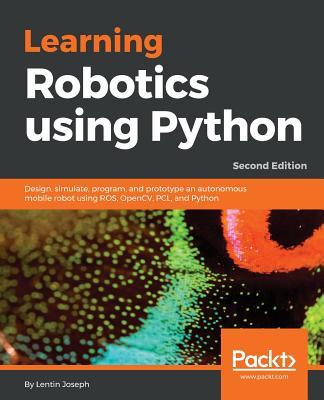Design, simulate, and program interactive robots
Key Features
- Design, simulate, build, and program an interactive autonomous mobile robot
- Leverage the power of ROS, Gazebo, and Python to enhance your robotic skills
- A hands-on guide to creating an autonomous mobile robot with the help of ROS and Python
Book Description
Robot Operating System (ROS) is one of the most popular robotics software frameworks in research and industry. It has various features for implementing different capabilities in a robot without implementing them from scratch.
This book starts by showing you the fundamentals of ROS so you understand the basics of differential robots. Then, you'll learn about robot modeling and how to design and simulate it using ROS. Moving on, we'll design robot hardware and interfacing actuators. Then, you'll learn to configure and program depth sensors and LIDARs using ROS. Finally, you'll create a GUI for your robot using the Qt framework.
By the end of this tutorial, you'll have a clear idea of how to integrate and assemble everything into a robot and how to bundle the software package.
What you will learn
- Design a differential robot from scratch
- Model a differential robot using ROS and URDF
- Simulate a differential robot using ROS and Gazebo
- Design robot hardware electronics
- Interface robot actuators with embedded boards
- Explore the interfacing of different 3D depth cameras in ROS
- Implement autonomous navigation in ChefBot
- Create a GUI for robot control
Who this book is for:
This book is for those who are conducting research in mobile robotics and autonomous navigation. As well as the robotics research domain, this book is also for the robot hobbyist community. You're expected to have a basic understanding of Linux commands and Python.
